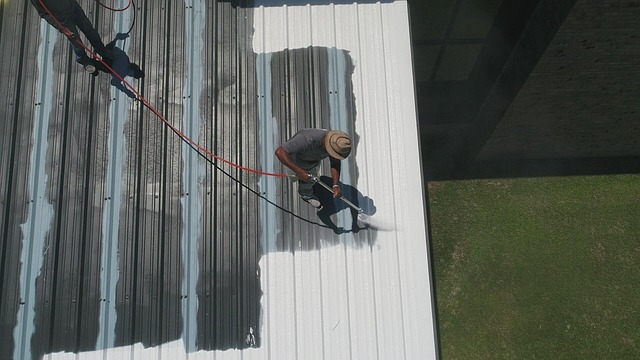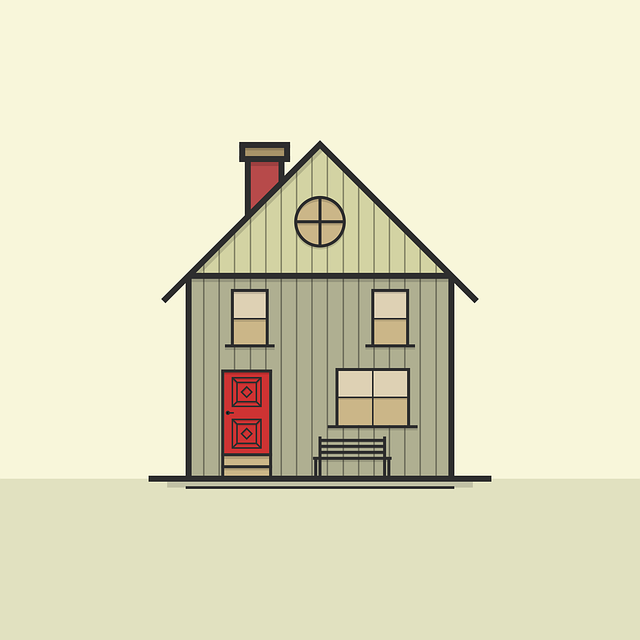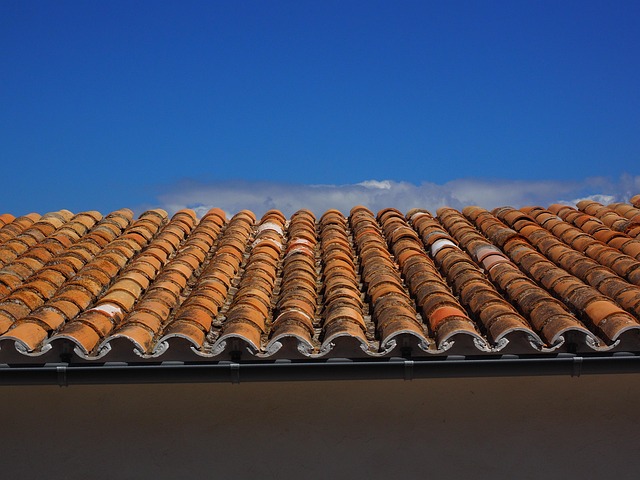Regular commercial roof checkups by qualified contractors are essential for structural integrity and long-term cost savings. Preventative care, including cleaning, repairing, sealing, and coating, enhances roof longevity, energy efficiency, and sustainability. A well-maintained commercial roof minimizes risks of leaks, reduces downtime, protects building contents, and increases property value. An ideal maintenance contract outlines inspection scope, responsibilities, warranties, and communication protocols, emphasizing the benefits of proactive roof care. Regular inspections identify issues early, saving on repairs and improving building performance, making it a strategic investment for businesses.
Regular commercial roof checkups and preventative maintenance programs are essential components of any successful facility management strategy. With proper care, commercial roofs can extend their lifespan, reduce repair costs, and ensure the safety and integrity of a building. This comprehensive guide explores the critical aspects of commercial roof maintenance, including identifying common issues, understanding the benefits of preventative programs, and providing best practices for inspections. By following these strategies, property managers and owners can partner with reputable commercial roof maintenance contractors to optimize their building’s performance.
- Understanding the Importance of Regular Commercial Roof Checkups
- Identifying Common Issues in Commercial Roofs
- Benefits of Preventative Maintenance Programs for Commercial Roofs
- Key Components of an Effective Commercial Roof Maintenance Contract
- Best Practices for Conducting Commercial Roof Inspections
- Measuring Success: Evaluating the Impact of Commercial Roof Maintenance Programs
Understanding the Importance of Regular Commercial Roof Checkups

Regular commercial roof checkups are an essential aspect of maintaining a structure’s overall health and integrity. Many business owners often overlook the significance of preventative maintenance when it comes to their roofing system, but this proactive approach can save significant time and money in the long run. A professional commercial roof maintenance contractor can identify potential issues early on through thorough roof inspections, including checks for leaks, missing or damaged shingles, flashing problems, and signs of moisture intrusion. By addressing these concerns promptly, businesses can prevent costly repairs, minimize downtime caused by unexpected roof failures, and extend the lifespan of their investment.
Implementing a robust preventative roof care plan allows commercial property managers to stay ahead of potential disasters. Regular cleaning and maintenance tasks such as clearing gutters, repairing or replacing worn-out components, sealing vulnerable areas, and applying protective coatings can significantly enhance the longevity and performance of the roofing system. Investing in these services from a qualified contractor not only ensures optimal roof functionality but also contributes to the overall energy efficiency of the building, ultimately benefiting both the business’s bottom line and its environmental footprint.
Identifying Common Issues in Commercial Roofs

Commercial roofs are often overlooked when it comes to regular maintenance, but identifying common issues early on is key. These structures bear the brunt of harsh weather conditions, heavy loads, and constant exposure to UV rays, which can lead to various problems such as leaks, blisters, cracks, and deteriorated materials. A professional commercial roof maintenance contractor will know exactly what to look for during inspections. Regular checkups should include thorough assessments of the roofing system’s components: from the underlayment and flashing to the tiles or shingles.
By implementing preventative roof care through established roof inspection plans, commercial property owners can save significant costs in the long run. Common issues like loose or missing fixtures, damaged gutters, or signs of moisture intrusion can be easily addressed before they escalate. Early detection ensures that minor problems don’t turn into major, costly repairs. A well-maintained commercial roof not only extends its lifespan but also safeguards the integrity of the entire structure and its valuable contents.
Benefits of Preventative Maintenance Programs for Commercial Roofs

Regular preventative maintenance programs for commercial roofs offer a multitude of benefits that go beyond simply avoiding costly repairs. By implementing structured roof inspection plans and roof cleaning routines, property managers can extend the lifespan of their roofs significantly. A professional commercial roof maintenance contractor will identify potential issues early on, long before they escalate into major problems. This proactive approach to roof care also reduces the risk of unexpected leaks, which can cause substantial damage to the building’s interior and disrupt business operations.
Moreover, preventative roof care contributes to energy efficiency and sustainability. Regular cleaning ensures optimal performance of drainage systems, preventing water buildup that can lead to heat absorption and increased cooling costs. Well-maintained roofs also enhance the aesthetic appeal of commercial properties, fostering a positive first impression for clients and customers alike. Effective roof inspection plans allow for the timely replacement of worn-out components, ensuring maximum structural integrity and safety for those occupying the building.
Key Components of an Effective Commercial Roof Maintenance Contract

An effective commercial roof maintenance contract should encompass several key components to ensure comprehensive coverage and optimal roof performance. Firstly, it must clearly define the scope of services, outlining regular inspections, repairs, and preventative measures like roof cleaning and sealing. This includes specifying the frequency of each task, ensuring a structured roof inspection plan that accounts for seasonal variations.
Additionally, the contract should detail the responsibilities of both parties: the commercial roof maintenance contractor and the property owner or manager. It must address liability, insurance requirements, warranty information, and communication protocols for addressing concerns or scheduling services. Furthermore, it should include provisions for preventative roof care, emphasizing the long-term benefits of regular maintenance to avoid costly repairs and extend the lifespan of the roofing system.
Best Practices for Conducting Commercial Roof Inspections

Regular commercial roof checkups are essential components of preventative maintenance programs. The best practices for conducting these inspections involve a thorough visual examination by a qualified commercial roof maintenance contractor. This includes checking for signs of damage such as missing or damaged shingles, flashing, or membranes; examining the drainage system to ensure proper water flow and no clogs; and inspecting the overall structure for any signs of wear and tear.
Additionally, preventative roof care measures like regular roof cleaning can significantly extend the lifespan of commercial roofs. A professional contractor should be engaged to perform these tasks, ensuring that all debris is safely removed without causing further damage. Well-maintained roofing systems not only protect buildings from weather conditions but also prevent costly repairs and downtime, thereby enhancing the overall value of the property.
Measuring Success: Evaluating the Impact of Commercial Roof Maintenance Programs

Regular commercial roof maintenance programs are a strategic approach to ensuring the longevity and optimal performance of your roofing system. Measuring success in these initiatives involves evaluating the impact on several key areas, from reduced repair costs to improved energy efficiency. A reputable commercial roof maintenance contractor will implement comprehensive inspection plans that include detailed assessments, identifying potential issues early on through meticulous roof cleaning and preventative roof care practices.
Over time, these programs demonstrate their value by minimizing unexpected roof failures, extending the lifespan of your roofing material, and enhancing overall building performance. By prioritizing regular maintenance, businesses can save significantly on costly emergency repairs, avoid business disruptions caused by sudden roof leaks, and contribute to a more sustainable and energy-efficient facility—all hallmarks of successful commercial roof maintenance contractor strategies.
